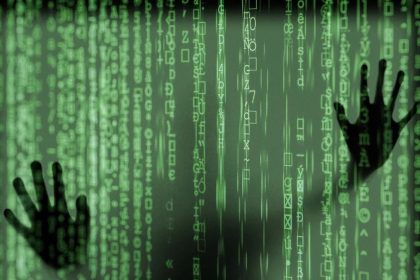Cybercrime Tracking Bill Signed Into Law

WASHINGTON — The Department of Justice can now get a handle on the number of cybercrimes happening in the U.S. after President Joe Biden signed a bill into law Thursday granting the department the ability to track crimes that have become increasingly prevalent in recent years.
The law, known as the Better Cybercrime Metrics Act, requires the FBI to track cybercrimes — online scams and fraud, corporate data breaches and ransomware attacks — just as it does for other property crimes. It also encourages local, state and other federal law enforcement organizations to report those crimes to the FBI to track the numbers across the country.
The bill passed with overwhelming bipartisan support.
“By collecting data on how often, when, and where cyberattacks are happening, our bipartisan bill will better protect people in Hawai‘i from online crimes like those against our transit and water systems in Honolulu, help us support victims of online crimes, and give us more tools to go after the criminals who perpetrate them,” Sen. Brian Schatz, D-Hawaii, a cosponsor of the bill, wrote in a statement.
Globally, cybercrimes cost people $1 trillion, according to the cybersecurity company McAffee. And these are increasingly prevalent, costing Americans an estimated $3.5 billion in 2019 to $4.2 billion in 2020, impacting between 300,000 to 700,000 victims each year, Schatz said.
The law also authorizes a nationwide study of these crimes through the National Academies of Science. The Bureau of Justice Statistics at the Department of Justice and the Census Bureau will also be required to include questions about cybercrimes in the annual National Crime Victimization Survey.
“Cybercrime is a major threat to our national security and has steadily increased in recent years, putting private information and energy dependability at risk,” said Sen.Thom Tillis, R-N.C. in a press release.
“The time has come for Congress to act on these growing threats by giving law enforcement and policymakers the tools needed to improve data collection and respond to cyber-attacks. I am proud to have worked with my colleagues on both sides of the aisle to get this necessary and timely legislation signed into law.”
This law’s signing comes about a year after the Colonial Pipeline attack that halted the flow of oil throughout the southeast.
“In an instant, the American people saw how cybercrime —now the most common crime in America — could jeopardize the integrity of critical infrastructure, the American economy, and our national security. And as cybercriminals increasingly adapt their methods of attack against vulnerable people and networks, the United States must improve our cybercrime classification system. Otherwise, we are risking the safety and privacy of American families, homes, businesses, and government agencies,” said Rep. Abigail Spanberger, D-Va., a cosponsor of the bill and a former CIA case officer and federal agent.
This law was also supported by multiple law enforcement agencies like the National Fraternal Order of Police, Major Cities Chiefs Association, National Association of Police Organizations, National White Collar Crime Center and Cybercrime Support Network.
“Until the enactment of the Better Cybercrime Metrics Act, there have been no standardized metrics for tracking cybercrime, which has hindered law enforcement’s ability to fully understand its impact across the country,” said Bill Johnson, executive director of the National Association of Police Organization, in a statement. “With these standardized metrics in place, it will be easier for state and local law enforcement to collect and report data on cybercrime incidents, leading to better investigations and prosecution of these crimes.”
Madeline can be reached at [email protected]























